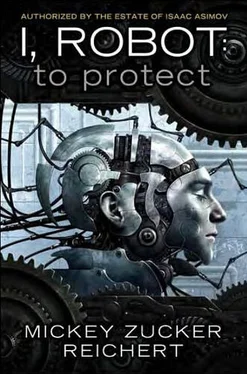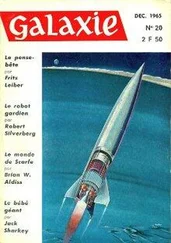Susan trembled in his arms, cursing her weakness. Tears streamed down her face. “You’re not wrong, Remy. I just didn’t realize it before. I consider myself so strong; but, when it came to preventing a tragedy, I froze.”
“You didn’t freeze. You just didn’t take a chance. As it turned out, your decision to say nothing wasn’t wrong.”
Susan had to admit the worst had not come to pass. “I might have stopped the whole process,” she choked out. “I might have saved his life.”
“Maybe.” Remington squeezed her tightly and closed his eyes. “Or he might have freaked out and detonated the bomb with everyone on board. My point wasn’t that it was in any way your fault. I’m just saying, if you start overquestioning your every decision because of one mishap, you deprive the world of your obvious and incredible brilliance.”
John Calvin stepped aside, wisely allowing Remington to handle the situation, though his fatherly instincts had to ache.
Susan sank to the ground.
Remington squatted in front of her. “You’re the one condemning both situations as personal failures and taking the burden of guilt on yourself. Medicine is an art, not a science. You use as much knowledge and thought as you can, but it reaches a point where you have to play the odds and intuition. A postsurg patient gets septic. Was it the glove that broke and had to be changed midprocedure? Was it the sneeze? Or was it simply inevitable? The Guzman procedure works best for sixty-two percent of people with early spinal cord separation. You use it on a patient, and he winds up quadriplegic. Could he have led a perfectly normal life had you gone with the Striker technique? Would the outcome have been exactly the same, or would he have died? Life has a lot of forks. Just because the consequences of choosing one was bad doesn’t mean the others would have been any better.”
Susan understood his point. “But had I not sent her home, her sister would still be alive. Her brother would not have had to undergo emergency neurosurgery. Her parents would not have been devastated.”
“Her parents were already devastated,” Remington said firmly. “Long before you came into the picture.”
“Yes, but . . .” Susan forced back the tears, and a sob shuddered from her in its place. “But things would have been so much better. At least, the sister would be alive.”
“Would she?”
The question seemed ludicrous. “Of course she would.”
“Because, if you had not sent your patient on a home visit that particular day, no one else would have done so. Ever.”
Susan finally managed to get control. “I’m sorry I’m blubbering like a baby. You’d never believe, just prior to this meltdown, I was thinking about how well I handle stress.”
“Answer the question,” John Calvin said quietly.
Susan’s father did not issue commands often, and Susan always took them seriously. “Well, of course, she would have gone on a home visit eventually. When she was more stable.”
“More stable than what?”
Susan flicked her gaze back to Remington, who had asked the question. “More stable than she obviously was.”
Remington released her, shook his head, and started to rise.
Susan wiped away the last of the tears. She felt ashamed of her weakness and hoped it would not drive Remington away. “Just ignore me. I got overwhelmed by the moment.” She glanced around at the carnage. “I guess the whole ordeal hit me harder than I thought.”
Remington smiled and offered his hand. “Ah, so the great Dr. Susan Calvin is . . . human, eh? Who’d have guessed it?”
Susan took his hand and forced her own weak smile. She hated the thought of appearing weak, promised herself not to let it happen again.
John Calvin waited patiently while they sorted themselves out before saying, “Ready?”
Back in full control, Susan said, “Ready.”
Her father approached the door, scanning palm and retina simultaneously, a foolproof security system that required a person to stand in one precise spot and position. The door whisked open to reveal a stuffy, austere foyer containing only a large, semicircular desk. A woman wearing too much makeup sat behind it, partially obscured by a large computer console that clearly controlled more than the standard palm-pross. “Good afternoon, John,” she said cheerfully. “They’re meeting in Lawrence’s office.” She looked over Susan and Remington. “It appears you need a couple of guest passes.”
John Calvin smiled at the woman. “Thank you, Amara. This is my daughter, Susan, and her boyfriend, Remy.”
Amara winked. “I figured as much. Not only do you bear a resemblance, but I recognized Susan from the eight hundred pictures in your office.” She tapped a couple of keys on her desktop, a printer beneath it hummed, and she pulled out two small, square pieces of paper. Stuffing each into a plastic holder with a thin lanyard, she handed them to John Calvin. Susan could now read the word VISITOR on each. She accepted one, slung it around her neck, then gave the other to Remington. He took his and put it on with the same deft flick of his hand.
“This way.” John led Susan and Remington toward one of five doors, this one bearing the name LAWRENCE ROBERTSON. He knocked firmly, paused briefly, then opened it.
Apparently cued by the knock, three men in dress polos sat in silence, all looking at the opening door. One stood up behind an enormous mahogany desk that held a half dozen palm-prosses; two digital frames; a mass of books, mostly hard copies bound in large folders; an enormous printer combo; and a surprising amount of paper, most of which seemed to contain circuitry maps. Loose computational chips also floated through the mess. The other two men sat on comfortable-looking, but mismatched, chairs, while three more empty chairs were spaced around the room.
The man behind the desk said, “Hey, John!” He gave Susan a warm and genuine smile. “This must be the younger Dr. Calvin you’re always talking about.” He came around the desk and extended his hand. “I’m Lawrence Robertson.”
From the reverent tone with which her father always spoke his name, Susan had pictured someone older, even though she knew they had been college roommates. He appeared to be about her father’s age, with dark, wavy hair, a large mouth, and a rugged complexion. He carried a touch of gray at the temples that perfectly matched his pale, friendly eyes. Susan knew he had founded the company the year she was born. He must have done so in his early twenties, already the genius behind the positronic brain. She gripped his hand firmly. It was dry, solid, and powerful.
“And this is Susan’s boyfriend, Remington Hawthorn. He’s a neurosurgeon.”
Susan wished her father would stop referring to Remington as her boyfriend. It made her sound twelve years old.
Lawrence Robertson released her hand to reach for Remington’s.
Remington clasped it. “You can call me Remy.”
“Remy, it is. And you can call me Lawrence.”
Susan did not feel any more comfortable referring to the founder of U.S. Robots and Mechanical Men by his first name than Remington did her father. She wondered if she could get away with “Sir Lawrence.”
Lawrence continued the introductions by pointing to a frumpy-looking, balding man in wrinkled dress clothing. “This is my director of research, Alfred Lanning.”
“How do?” Alfred mumbled when no one stepped close enough to shake hands.
“And one of our top roboticists, George Franklin.” George did not wait for them to come to him. A tall, gangly youth, he crossed to the center of the room in a single step to shake hands with Susan and Remington. “Pleased to meet you.”
Lawrence Robertson stepped back behind his desk, his gaze still on Susan. “So, young lady, when are you joining us on staff?”
Читать дальше












